|
When dealing with autism, just as in most other disorders, you will be faced with a number of therapy options for your child. These include therapies that are educational, behavioral, biomedical, nutritional, and sensory.
This post may contain affiliate links. Purchases made through these links help make content like this possible, at no charge to you. We thank you for your support. One way to ensure that your child receives the best possible therapy for autism is to carefully monitor the effects a therapy has over time. By finding out which therapies work and which do not, you can stop paying for the ineffective methods and put more of your money into those which are creating a positive difference. First, evaluate the abilities of the autistic individual before the therapy begins. To do this, many services and organizations, including the Autism Research Institute, provide a checklist of evaluation points that focus on behavior and illnesses associated with autism. Autistic individuals tend to have increasing functionality as they mature, so remember that some of the positive effects in his or her life are simply due to the natural growth process. However, after two months fill out the checklist once again and compare it to the first. Are there any sharp positive increases in behavior characteristics? If so, this is more likely due to the treatment. It is important to begin only one treatment method at a time. If you try everything at once instead, good and bad effects may cancel one another out, or even if the effect is totally positive, you will not know which treatment method is causing it and which are not doing anything. Of course, past studies can help you choose which methods to use, but because autism is an extremely complicated and individual disorder, these studies are not always helpful. Also, some treatments are so new that the studies done are only on short-term effects, which is usually unhelpful. Instead, it is a process of trial and error. Two months is a good amount of time to study the differences within an autistic individual trying a new treatment. After two months, if you do not see positive improvement, you can discontinue your use of that particular method and better invest your money in treatment options that work. Remember that you do not always have to wait two months to make choices about whether to continue or discontinue a therapy method. If the side effects of a medication, for example, are interfering with the patient’s life in an unbearable way, then you should discontinue the treatment. You can also make continual treatments based on immediate good reactions—just remember to continually monitor the various methods. Autistic individuals grow and mature just like everyone else, so treatments may stop working after time. Before trying anything new, consult your doctor to make sure you are being as safe and healthy as possible. Autistic children need schedules Schedules are an important part of every child's life. This is especially true when dealing with a child of special needs like Autism. Having a schedule will help the Autistic child feel a sense of structure. Children with Autism often have anxiety issues they are dealing with. Having a schedule helps the levels of anxiety to drop. They know what to expect daily. They know at a certain time of the day what they will be doing. If there is no schedule or structure in an Autistic child's daily life things will be very hectic. An Autistic child can have a lot of medical and therapist appointments. Sometimes there will be more than one appointment a day. Keeping a schedule can help you and your child to make sure they do not miss any appointments. Some Autistic children have trouble with reading. You can use a visual schedule. Have pictures for all the daily activities. This allows them to see what is coming next. Having a schedule for your Autistic child will help avoid some breakdowns. Keep the schedule posted where your child can see it. If you have to change the schedule explain the changes to your child. Autistic children like routines, and a change could throw their whole day out of whack. Homeschooling One Child has a visual schedule available for subscribers. To get yours, simply subscribe to the newsletter here. Schedules can be a help when trying to get the child to do something they do not want to do. Simply show them that after they do the task or activity they will get to move onto something else. Tell them they cannot move on until this activity is completed. It’s difficult to argue with a printed schedule. There will always be things that come up. Try to stick to the schedule as much as possible. When things come up try to get back on schedule as soon as you can. This includes weekends. If your child is used to getting up at seven in the morning continue to do so. Keep their bedtimes close to the same time each night. Your Autistic child will be happier when they have had enough sleep. Schedules will make life much easier for you and your Autistic child. Keep them posted for your child to see and stick to the schedule the best you can. An example of a schedule you can use is found below. 7 AM Wake up, get dressed, and ready for the day 8 AM Breakfast 9 AM Therapy Appointment at home or homeschool 11 AM Free time/ Play time 12 PM Lunch 1 PM Outdoor Play 2 PM Therapy Appointment at home or homeschool 3 PM Free Time 5 PM Dinner 6 PM TV time 7 PM Bath time 8 PM Bedtime This allows the child to know what is going on during the day. Include medical or therapy appointments on the schedule. An older child can still benefit from a schedule. It has to be adjusted for school time, and any extracurricular activities. You can include homework time and chores into the chart. Once you start using a chart for your Autistic child you will see an improvement in the flow of your day. This also leaves little time for boredom. There is always something planned to do. Let your autistic child be a kid Many parents with autistic children are afraid to let their child be a kid. They get so wrapped up in their child's therapies they forget to let them have fun. They focus on keeping them safe and become too protective. The child's life becomes full of appointments. They get little time to just be a kid. While it is important to keep your child safe it is also important to give them time to do things they like. Here are some things you can do to make sure your child gets to be a kid. 1. Give your Autistic child a certain time each day to do whatever they want to. If they have a toy or game they like to play let them. Everyone needs a break from appointments. 2. Arrange activities for your child that they like. This could be something like a trip to the park once a week, or a meal at their favorite restaurant. Let the child pick the activity. Maybe they would like some time to spend with grandparents or a favorite family member. 3. Let them retreat into their autistic bubble—but don’t let them stay there. If they need a sensory break and want to watch a train video or play with trains, or be on a tablet, or swing from a sensory swing, let them do that. These activities are not wastes of time, but instead they help the child process and decompress. 4. Do not teach your child to be a victim. Just because they are Autistic does not mean they cannot have a normal life. They need to be taught to not let their condition stop them in life. Teach your Autistic child they can do anything they set out to do. 5. Do not let your child's diagnosis of Autism become an excuse. Give your child consequences if they do something wrong. Do not let them get away with things simply because they are Autistic. Children learn pretty quick that the excuse of their condition can get them special treatment. This will not help them later on in life. 6. Give your Autistic child chores. Make sure they are chores the child is capable of doing. This will give the child the pride of knowing they can accomplish something. Give them rewards for completing the chores. The chores could be as simple as making their bed, picking up their toys, or feeding pets. 7. Do not lower your expectations for your Autistic child. Teach them to always do their best. Having a medical condition should not give them a reason to not try. If they do not try they will never know their full potential. Kids get hurt. They get dirty. That is all a part of being a kid. Do your part and watch over them but allow them to have some freedom. Even though your child has special needs, allow them the chance to be a child. Homeschooling autistic children There’s an old adage regarding autistic people: if you’ve seen one person with autism, you’ve seen one person with autism. This means that autism is a wide-ranging developmental disorder that manifests in many, many different ways. You have to do what is right for your family and your child, regardless of what works or doesn’t work in other autistic homes. There are many resources and activities for children with autism for homeschooling. Some parents, especially those who have had children in public schools, are familiar with individualized educational plans, or IEPs. As a mom of four special needs kiddos, three of whom were in public school and the last daughter was in public school for 2-1/2 years, I can say with all confidence homeschooling is the best IEP you can possibly give your child. You know your child more than anyone, and you are fully capable of teaching your son or daughter, even if autism is present. Absolutely, count therapies as homeschooling. Kids work hard in therapy, and they learn a great deal--why shouldn't that count as homeschool? In fact, if all your child does in a day is therapy, that's a homeschool win. Read to your child, no matter the age, every day. Talk with your child, even if he or she is nonverbal. Just because the child cannot speak does not mean the child isn't listening to you. (Be mindful of what you say; if you're talking about the child with the child in the room, don't be negative and say the child cannot do something. What a child hears, they become). Be patient when teaching. Make abstract concepts as concrete as you can. Use manipulatives in math. If they act out or have some sort of behavioral meltdown during a subject that you've gone over again and again, it might just be that they're bored. My autistic son did menu math in school for years until I homeschooled him the last semester of his senior year, due to bullying and behavioral issues. Turns out, he was bored with menu math. After I acquired a pre-algebra book and started teaching him that, his behavior issues cleared up. He found pre-algebra to be intriguing, like codes to solve. He had been bored the whole time and was acting out because of it. Other resources for kids with autism As I wrote above, I'm a mom of an adult son with autism who was diagnosed in 2000 at the age of six, when there wasn’t a lot of research, acceptance, or tolerance for people with autism. I had to do a lot of trial-and-error on my own to help him. There are a couple of tools and resources I used throughout his childhood and teenage years to help him. One was the website Do to Learn. This website has an incredible treasure trove of resources, information, and tools to help parents with their kids. Another resource, especially in Sam’s teenage years, is the book by Mary Wrobel, Taking Care of Myself. This book (the edition with the green cover is the best) helps teach teens with autism about hygiene and puberty. It can be used as a personal curriculum for young people with autism. Lastly, it helped me a great deal as a mom with an autistic child to learn from others who had experience managing life while having a child with autism. Parents with typically developing children simply don’t understand the grief, joy, heartache, and extreme fatigue that comes with having a child on the autistic spectrum. Having been through that road before, I wanted to do something to help others who are homeschooling kids with special needs. That is why I created the Homeschooling Special Needs Expo, coming to Shelby, NC, June 28-29, 2024. This Expo delivers over 50 educational sessions from over 30 seasoned, experienced homeschoolers and people who have or are facing parenting children with various challenges. It also features almost 30 exhibitors that focus on curriculum, special needs, therapies, testing, and other services or products to help you in your homeschooling special needs journey. For more information, and to register, click here. Blessings, Terrie © 2024 Terrie Bentley McKee ALL RIGHTS RESERVED
0 Comments
This is the first installment in a six-month long series on homeschooling various special needs, in anticipation of the Homeschooling Special Needs Expo, an in-person conference coming June 28-29, 2024 to Shelby, NC. Open to all in the United States, this conference is the first of its kind in the nation, featuring Temple Grandin delivering the in-person Capstone Keynote and a church track to help churches minister to special needs families, in addition to helping teach parents how best to homeschool their special needs children and teens. For more information on the conference, click here.
What is executive functioning? Executive functioning are those skills that help a person plan ahead, meet goals, follow multi-step directions, have self-control, and manage distractions. For many kids (and adults!) with autism, ADHD, and other neurodivergent issues, executive functioning skills are not innate. However, one can exhibit executive function delays without having autism, ADHD, or other issues. The keys to help a child with executive functioning issues are to identify the issues and then to train the brain to develop those skills. There are eight key executive functions: Impulse control, Emotional Control, Flexible Thinking, Working Memory, Self-Monitoring, Planning and Prioritizing, Task Initiation, and Organization. Here are seven ways to homeschool kids with executive functioning issues. Use a planner for each child Use a calendar-planner for each child, where the child can write down assignments, tasks, chores, therapy sessions (if applicable), and keep track of important dates, such as birthdays, youth events for church, and due dates for homeschool projects. Use this planner to write down daily goals and priorities. Check the planner daily but allow the child to use the planner to take ownership, to help him or her track progress. Top 5 priorities Each Sunday evening, sit down with your child and work together to develop the top five priorities for the coming week. This may look like studying for an upcoming test, researching a paper, finishing a project, practicing an instrument five hours, or even taking care of pets. The important thing is to let your child think about the upcoming week and its tasks and develop five priorities based on the academic activities (or household chores) that are coming up in the week. Once your child thinks about those priorities then writes them down in the planner, help the child stay on track by referring back to the planner. Bonus: a child cannot argue with the planner! After several weeks of this, with success, this will become a habit that will stick with the child for a very long time. Do what you dread first Encourage your child to not put off unpleasant tasks but go ahead and knock out things he dreads first. For example, if your child hates to do math because she doesn't like it, encourage her to do math first, so that she's not dreading it all day long. Sometimes the anxiety of knowing that we have to do something we don't like to do paralyzes us in doing anything at all. Set up morning and evening routines Routines are critical in helping kids with executive functioning disorder thrive. Help your child by setting up and maintaining morning and evening routines, with self-care items such as bathing/showering, skin care, teeth brushing, any medications, meals, etc, part of those routines. Some homeschool families enjoy utilizing a morning basket in which books are read, puzzles solved, and the Bible read as a family before the academics of homeschool even start. Then, in the evening, have showers or baths, snacks, a movie, Bible devotional, or reading books in bed...the key is to maintain the routines for the good of all. Use a timer With some children, they take so long in doing one subject that they can't get to anything else. This frustrates them, frustrates parents, and doesn't make for a happy homeschool. First off, don't assign twenty math problems when six problems can represent the lesson and tell if a child has mastered the concepts. Use a timer, especially for things like math problems, spelling assignments, writing papers, or other things like teeth brushing. The little added pressure of beating the clock will help the child move on to something else and take away the dread of dealing with a subject he doesn't like. Start small In dealing with executive functioning issues, start with one thing. Set up routines, get them to a point where they're habits, then incorporate a planner. Like fad diets, moving too quickly from one thing to another is a set-up for failure. Do one thing for a couple of weeks, than add something else. Understanding goes a long way Children are rarely oppositional for no good reason. Usually there's an underlying reason behind difficult behaviors--diet, lack of sleep, a developmental delay or neurodivergent issue that hasn't been diagnosed, or lack of structure are all things to consider. Understanding why your child is acting out, not focusing on his or her work, or forgetting things you just went over is critical to getting your child the help he needs. Many times, in the process of discovering that your child has an executive function disorder, you may find that you also have the same issue. Executive functioning disorders can impede a person's entire life, but there are things that can be done to help train the brain to function to prevent anxiety, make deadlines and life goals, and not be late for events. Like with anything, it takes time and discipline to hone those skills, but just acknowledging there's a problem is the first step. Blessings, Terrie (c) 2024 Terrie Bentley McKee ALL RIGHTS RESERVED As homeschooling increases across the United States, especially regarding homeschooling children with special needs, it's inevitable that parents seek out resources to help them teach their children. To meet this need, the Homeschooling Special Needs Expo is being created and launched to meet the needs of homeschooling parents throughout the nation to serve their children who are differently-abled.
The Homeschooling Special Needs Expo will be held June 28-29, 2024 at The LeGrand Center in Shelby, NC (about 45 minutes west of Charlotte, NC). IAJ Ministries, LLC, the umbrella organization of Homeschooling One Child, is planning this event. The Expo features over 50 educational sessions on a wide variety of topics relating to homeschooling and various special needs. In addition, in order to encourage churches to be more inclusive of children and adults who are differently-abled, there will be a Church Track that will give churches the tools and resources to minister to families who have family members with disabilities--whether those are physical, cognitive, genetic, or others. Sessions will also encourage churches to embrace homeschooling and how they can do that, as families who are homeschooling are increasing in churches and across the nation.. Autism advocate Dr. Temple Grandin will be the featured keynote speaker, along with Dr. Carol Brown of Equipping Minds; Davis Carman of Apologia; Ryan Platt of A Special Needs Plan; and Terrie McKee, the owner of IAJ Ministries and Homeschooling One Child. Dr. Carol Brown will be speaking on "Naturalistic or Biblical Worldview of Human Development: Renewing the Mind;" Davis Carman will be speaking on "Give Me One Good Reason to Homeschool;" Ryan Platt will be speaking on "Planning for Two Lifetimes;" and Terrie McKee will be speaking on "The Valleys and Victories of Autism." Tickets for the Homeschooling Special Needs Expo are $79 per person. Lunch for both days can either be added on for $15 per person per day, brought in as a bagged lunch (not provided by IAJ Ministries), or families may leave and return (provided name badges will gain participants entry back into the event). Participants have the option of adding on the "Dr. Temple Grandin VIP Experience," in which a limited amount of people will be able to meet Dr. Grandin. The number is limited to 200 people as to not overwhelm her. Tickets for the "Dr. Temple Grandin VIP Experience" is $49 per person. Session speakers include Marianne Sunderland, Michelle McCarthy, Penny Rogers, Susan Blackwell, Candice Dugger, Shelley Whisenant, Davis Carman, Sarah Olbris, Gena Suarez, Stepahnie Buckwalter, Dr. Carol Brown, Joni & Friends, Greg and Terrie McKee, Amy Bodkin, Ashley Anderson, Peggy Ployhar, Beckye Barnes, Ryan Platt, Sarah Collins, Jennifer Pugh, Rachael Carman, Stefanie Henry, and Sarah Collins. Other speakers are being added. Session topics can be found here. In addition, there will be a Sensory Room for children who are getting overwhelmed and for parents and kids to explore sensory toys, tools, and equipment. The Exhibit Hall is still accepting exhibitors. Current exhibitors can be found here. Exhibitors have the choice of either a 10x10 or 10x20 booth. To register for this amazing event, click here. You will have the option of adding on the Dr. Temple Grandin VIP Experience and/or meals at checkout. For more information on exhibiting, please email here. I'm a mom of four special needs children, even though three aren't kids anymore: they've moved out, gotten married, off the payroll. But three of those children have ADHD, and the youngest, who is 13 now, is blessed (insert sigh) with a good dose of ADHD, too. Suffice it to say that I know my way around ADHD. Here are 13 tips from a seasoned mom of kids with ADHD on how to homeschool a child with attention deficit disorders.
This post may contain affiliate links, which help support this website. I thank you for your support when you click on the links and order from them. Allow Fidgeting When homeschooling, the temptation is to sit at the dining room table or in your homeschool room and make the kids sit for all subjects (insert laugh track here). Children with ADHD have to fidget, squirm, move--it's how they process information. If they don't, or aren't allowed to fidget, that's when problems occur and they act out. There are many ways you can allow fidgeting. Bouncing legs, playing with fidget spinners and other fidgeting toys, wiggle seats, tapping fingers on the table...all are tools kids with ADHD use to help them process information and deal with the myriad of thoughts parading through their minds. Allow Movement In a similar vein, movement helps kids with ADHD to absorb information. It goes against everything we know as parents, but allowing your child to do jumping jacks or bounce on a trampoline while saying his spelling words really does help. Don't have an outdoor trampoline? This small indoor one will help your child get that sensory movement they crave, while doing schoolwork. I've even told my child to run around the house between subjects to get some gross motor skills in with the movement. If you have a swingset outside, allow "recess" to happen between subjects to get out those wiggles. You could also walk with your child around the neighborhood between subjects to get in some movement--and maybe have a conversation about what he or she just studied as added reinforcement. Ear Plugs or Headphones Kids with ADHD often have sensory issues, too, and are heavily distracted by the world around them. You can minimize these distractions through playing soft instrumental music during your homeschool time, silencing your phone or turning it off altogether, hanging a sign on your door that says "Homeschooling in Progress; Please Don't Interrupt," and using noise cancelling headphones or ear plugs. Make a peaceful environment in your home during school hours. Use a Timer Using a timer was a game changer with my kids. When I'd give them a set time, using either a manual timer or the timer on the stove, it was a huge incentive for them to beat that time. The kicker is, if I used the timer as a motivating force for them to do math or any other subject, the answers to the questions had to be right. They just couldn't fly through it; questions had to be answered correctly. Using a timer wasn't just for schoolwork, though; I used it in chores, such as cleaning the kitchen, or anything that they would typically dawdle in. Make a To-Do List Making a to-do list for each child is imperative. Whether it's for homeschool, chores, or anything else, a to-do list helps the child keep track of what they need to be doing. My daughter will be using this amazing planner from Not Consumed for middle school homeschoolers. They have planners for elementary and high school students, too (and moms!). Be Very Specific in Instructions With my kids, I found that I needed to be very specific in giving instructions and in what I expected of them. For example, "clean the kitchen" was too broad and overwhelming, but "unload the dishwasher" and "sweep the floor" were more concrete requests. I don't know about you, but I just find it less of a hassle to load the dishwasher myself, or stand there and direct how to do it. In schoolwork, with my daughter who has ADHD, I tell her (then she writes it in her planner) what she is to accomplish the next day, including the page number range she is to read in certain subjects like history and science, questions she needs to answer, and words she needs to define. Just saying "do your math," leads to a lot of frustration to child and parent alike. When she is cleaning her room, I get her to write down what she needs to do: "pick up trash, put laundry in hamper, make bed." Then she can cross off the items as she does them. Chore Sticks One thing I did when my kids were younger was write down a chore on a craft stick using a thin permanent marker, such as "unload dishwasher," "sweep living room," "scoop the cat boxes," "wipe dining table," etc. Then each morning they'd choose a chore stick or three to do that day. This doesn't work so much when you have just one child at home, poor girl, but when I had all four at home, it worked well. Label Things One thing that has helped is to label things, especially when you small children such as preschoolers or early elementary. Label toy bins for specific toys so your kids won't get overwhelmed putting things away (we'll talk about bedtime routines below). Label homeschooling bins with the appropriate supplies so people can find things and put things away. Help Your Child Study Sit beside your child as he's doing his schoolwork. If you work from home, work beside him with your laptop. Often just your presence there will help minimize distractions and keep him on track. Plus you can easily help him if he gets stuck. Often, reading the text to your child will help her absorb the material better than reading it on her own. Utilize Flash Cards Utilize flash cards for review, such as math facts or states. Have your child use index cards and make their own flash cards for facts they need to know, such as their spelling words or history facts. Reward Compliance Instead of flying off the handle and giving attention to the naughty things your child does, reward compliance when they do something good. Often, my children would misbehave because they'd get more attention when they misbehaved. When I figured this out, I changed the way I was doing things and spent a lot of quality one-on-one time with each of them. I'd take one out for ice cream or something and spend time talking with him or her (with the child, not at the child). I found that when I did this, behaviors that ran contrary to what we wanted diminished. For little kids, stickers on chore charts go a long way. Set a Bedtime Routine Have a set bedtime routine and time for each child. Turn the television off and wind the whole family down. Have a fifteen minute pickup where children put toys and books away, you get ready for the next day's homeschool day, even to the point of laying clothes out. Showers or baths, storytime, reading the Bible--whatever helps your family wind down and prepare for a good night's sleep. The key is routine. Kids with ADHD thrive on routine and structure. Give them that, and negative behaviors will slowly disappear. Outdoor Free Play It is crucial to give your kids with ADHD outside free play, where they can run and shout and explore. If you have a fenced-in yard, that is ideal; if not, plant yourself on a chair with shade and a cold drink, and watch them play. Engage yourself in their play and build those relationships apart from textbooks and worksheets. Kids grow up so fast -- even kids with ADHD. Those moments are fleeting. As I type this, I look up at a picture I took of my two boys when the oldest was five and the youngest was two. Now, they're 28 and 25 -- and the 25-year-old is married. It seems like just yesterday I snapped that picture on a playground, the oldest holding a stick and the youngest holding his brother's hand. Even though you have a child with ADHD, don't allow ADHD to take away from the joy that is rearing children. ~ Terrie (C) 2023 Terrie Bentley McKee ALL RIGHTS RESERVED Here it is: summer time, and the kids are ancy, not to mention the parents. Even if you homeschool year-round, summer is a perfect time to do some things a little different. Incorporating summer activities on a budget is a great way to add in some great learning opportunities that don't seem like they're educational -- even on a budget. Just a word of encouragement though--not every single activity needs to be educational--sometimes, fun is the word of the day.
This post may contain affiliate links that, when you purchase using them, provides this website with a small commission, which helps keeps us afloat. We do appreciate it. Farmstands Visiting farm stands, especially those on farms that allow pick-your-own, is a fun way to get some really good, fresh fruits and veggies. You're going to buy them at the store anyway, so why not visit a farmer or even a farmer's market and get some good, fresh foods (and support a local farmer in the process)? Gardening Speaking of food, growing your own vegetables and fruits in whatever way you can (pots on a balcony, in the yard, in raised beds) teaches kids where their food comes from and enables them to help grow it (maybe then they'd be more willing to try different vegetables). A bag of potting soil, a large pot, and a tomato plant and boom! You have home-grown tomatoes for your salad. Water play If you're blessed enough to own a pool, that's amazing. Add in some fun floats like this fun sea turtle ride-on, or these water squirters for epic pool battles, and you have a staycation in the making. If you don't have a pool, I'm right there with you. But we can still have amazing water play with this 60" inflatable unicorn sprinkler. For little kids, buckets of water, measuring cups, and a little inflatable kiddie pool will get them cooled off in no time -- and help parents stay cool by dipping their feet in the pool, too (or joining them in the pool if it's big enough!). Nature walks Nature walks in the woods (be careful of snakes!) can be relaxing and fun, and they don't cost anything. Find leaves that are interesting or explore creeks and look for turtles. There's a lot to be said about getting kids in nature and letting them explore. Staycation Often we will visit different touristy sites on vacations, but we don't visit similar places in our own city or county. Take a week or a couple days off work, grab the family, and explore touristy sites in your hometown. Museums, attractions, theaters--even bowling alleys or theme parks at our own back door can be a fun and inexpensive way to vacation at home. Plus, you're sleeping in your same bed! Staycation Deluxe To up the ante on staycations, why not check into a hotel in a nearby city for a weekend? When I was growing up, we didn't have a pool or the money to go on full-fledged vacations, so my parents would pack overnight bags and we'd go to a city about 20 miles away for a change of scenery, and to utilize the hotel pool. Subscription Boxes Subscription boxes are a great way to fight the boredoms of summer and get the kids interested in what comes in the mail. Kiwico has tinker crates for ages 9-16 that gives a new, surprising theme each month. It's a good way for kids to use those STEM skills and fight off boredom. This website, Homeschooling One Child, also has subscription boxes. Each box is curated just for your child with fun things to get their minds engaged but also have fun at the same time. Check out our sub boxes here. Movie Nights Have each member of the family choose a movie once a week to watch as a family, complete with popcorn. Bring in mattresses off a bed, and pile on the floor to watch the movie. Little changes like that can make it so much more interesting and enjoyable as a family. VBS Check out local churches' Vacation Bible Schools for your kids--there's usually one going on every week in the summertime. It's a good way to get your children engaged and around other kids while learning about Jesus (win-win!). There are a lot of summer activities you can do (making your own popscicles, for one!), like grilling out with family or friends, just relaxing outdoors, or going to a local park for a picnic and playtime. You don't have to spend a lot of money to have good, wholesome family activities. The most important thing is to be together. Blessings, Terrie (C) 2023 Terrie Bentley McKee ALL RIGHTS RESERVED Five biblically-based Christian women will be speaking on who women are in Christ, Whose they are, and how they can make a difference in the culture in which we live at the "For Such a Time as This Christian Womens Retreat." The retreat, to be held September 15-17, 2023 at Dogwood on Lake Norman in Sherrills Ford, NC (outside of Charlotte, NC), will feature nationally-known Christian author, speaker, and podcaster Heidi St. John, podcaster Julie Holmquist, author and speaker Terrie McKee, and Bible teachers Julie Denham and Stephanie Vroege. Worship will be led by Annamarie Smith. "The 'For Such a Time as This Christian Womens Retreat' is a time of worship, learning about who we are in Christ, and what our role is in the world in which we live. We will discuss how we can biblically fight for our families, and know we are not alone: there are an incredible number of women in the Bible who fought for themselves, their husbands, children, and their country. This retreat is a time away from the busyness and grind of life, to get back into the Bible, have fellowship with other Christ-believing women, and walk away rejuvenated in Christ and armed for the spiritual battle we face. The sessions will support these themes biblically and with practical application--and a lot of prayer," said McKee. The retreat is developed and implemented by IAJ Ministries, LLC, a conference and retreat planning company owned by McKee. "This retreat is born out of asking Jesus one night in prayer what He wanted me to do," said McKee. "That same night, I had a dream about 100 women standing on the banks of a lake, being poured into biblically by a total of five women. The morning after, I immediately did an Internet search for retreat venues near Charlotte, and Dogwood on Lake Norman popped up. When I visited there, it was the venue I had seen in my dream. It was then I know -- God was in this." The retreat is open to 100 Christian women. Accommodations, meals, snacks, and all program materials are included in the cost of the retreat. The early-bird pricing is $375 per person until May 31; on June 1 the price goes to $415. Accommodations are hotel-like with two women per room with a private bath. Accommodations are assigned; however, participants have the option of choosing their roommate on the registration form. IAJ Ministries is also looking for sponsors for this event. Gold level sponsors are $3,000 and receive recognition at the event, in news releases, the event website, on social media, logo placement at meals, material placement in the swag bag, sponsorship of a prayer parlor, and a table for material placement at the event. Silver sponsors receive recognition at the event, in news releases, social media, website, as well as material placement in the swag bag and sponsorship of a prayer parlor. Silver sponsorships are $1,000. Bronze sponsors, at $500, receive recognition in news releases, at the event, and on the website. Friend sponsors are $200 each and receive recognition. One Gold sponsor has already been obtained. Bella Home Services, out of Fayetteville, NC is a locally/woman-owned cabinet and home-renovation design source dedicated to high-quality yet affordable products and custom interior design services throughout North Carolina. Each participant will receive a hefty swag bag, involvement in a more intimate "prayer parlor," led by an assigned speaker, and, harking back to Christian camp days, a Vespers devotional and worship with s'mores will be featured on the last night of the retreat. For more information, see IAJ Ministries' website here. To register for the event, click here. The closest airport is Charlotte Douglas International Airport (CLT). IAJ Ministries is a Christian conference and retreat planning company which plans and implements events for Christian women and homeschoolers. Visit their website at IAJMinistries.org.
Some say homeschooling is only for the younger kids in the elementary or middle school, but high school homeschooling is also a very popular educational choice. Only this time, the decisions lie in great part with the students themselves.
This post may contain affiliate links, which help support this website. We thank you for your consideration and your support. Most that homeschool in high school are teenagers who cannot take the pressures at school, especially those of peer pressure and bullying. Others cannot catch up with the lessons and curriculum programs of regular schools or would like to start early in life through training, internship and community volunteering jobs that would help them be knowledgeable and prepared for the struggle outside the four walls of their school. Still others have been homeschooled their whole lives; why stop now? Choosing the suitable curriculum for teenagers for high school is very important. There are a lot of materials or support they can get especially on the Internet. They can talk to other homeschoolers in established groups through message boards, forums and chats to build a network. Homeschooling sites are also all over the net; they can browse through these sites, find an established support group in their area, get some catalogs and enroll in a curriculum or they can create their own study program. Co-ops are equally as important. This is good for those students who have very supportive and open-minded parents. But in case there are none and the student is left to carry out his curriculum by himself, homeschooling helps students to stand up and depend on themselves because one thing that is developed within is good independent study skills and more as they engage in continuous studying on their own. In choosing the homeschool curricula, it is best if teenagers are present and take an active part in deciding which curricula to choose that would best apply to their learning styles and abilities. It's good for teenagers to create their own course of study. In this way, students will have good choices of activities which develop every aspect of their personality instead of just choosing a fixed program. There are different approaches to choose from and combine that would help in the holistic development of the student. For high school, homeschooling can help them start in life and make a step forward through practical trainings and internship programs depending on the specialization they like to pursue. They can actually be successful in what they want and might do best in the future. For more information on homeschooling in high school, please visit these sites below: Electives to Teach Why You MUST Teach Entrepreneurship in High School Teach Your Teens to File Their Taxes Life Skills to Teach Your Teen: Event Planning 101 Student Blogs: Why Your Teen Should have Their Own Blog Homeschool High School Speech and Debate - 4 Frugal Resources Preparing for College Preparing Your Homeschooled Teen for College Transcripts Assigning Grades for Homeschool High School Transcripts Assigning High School Credit and Planning High School at Home Summer Plans 101 Things for Teens to do in Summer Balance Balancing Academics and Fun in Homeschool High School Thinking about After High School Steps to Choosing the Right Degree After High School Life After High School: Navigating Your Next Steps After High School General / Planning High School Homeschooling High School--Relax, You CAN Do It! Homeschooling High School/5 Tips to Get Ready for the New Year/Special Needs High School High School Archives by Year Round Homeschooling An Authoritative Guide on How to Homeschool High School Should I Homeschool My High Schooler? Curriculum Our Frugal High School Curriculum Choices Homeschool High School English - Make Your Course YOUR Own Affiliate Resources 7 Sisters Homeschool (many, many high school curriculum resources) Hundreds of high school courses at Schoolhouse Teachers In the spring and summer, homeschooling content creators call this "convention season" and it's for good reason. There are so many homeschool conventions, conferences, expos, and days scheduled all over the country during the spring and summer that it warrants its own season.
This post may have affiliate links to homeschool conventions that help fund this website (and give you a good deal, as a coupon is included). We appreciate your support. What does this mean for you, a homeschooler? It means that if you have any question about homeschooling, there will be someone at a homeschool convention that can answer that for you. If you're thinking about changing curriculum, you can browse, look through curriculums--even talk to the curriculum creator in a lot of instances. Here are nine reasons why homeschooling families should attend homeschool conventions: 1. Speakers The first reason is the large variety of homeschooling speakers who pour out their expertise in sessions that are designed to help you and your children. There are keynote speakers that have been homeschooling for years (sometimes decades) and are fighting for you and your children on the national level. They have more encouraging knowledge in their little fingers that most have in their whole hand. Last year's Teach Them Diligently in Pigeon Forge saw Kirk Cameron on stage, then Heidi St. John, and other powerhouse proponents of homeschooling. In smaller sessions you have homeschool content creators, curriculum writers, bloggers, and other homeschoolers who know what they're talking about, and give you that knowledge--and are often free right after the session for a few minutes or available in their booths to talk one-on-one with you. I know that after my session on special needs children last year at Teach Them Diligently-Pigeon Forge, I had a number of parents come to my booth to ask me specific questions about autism, ADHD, and other learning difficulties. They walked away with not only helpful information but also my card for further assistance. Many speakers are like that--or have resources that will help you in your homeschooling journey. Tip: Bring a notebook to write notes, ideas as they come to you in sessions, questions to ask, booths to visit, etc. When you meet another homeschooling family and your families click, use your notebook to write their contact information down. 3. Phenomenal Sessions Every homeschool convention company works tirelessly to bring in speakers who know what they're doing, and have something to say about it, and because of that, participants enjoy phenomenal sessions about a wide range of topics--from Homeschooling 101 to homeschooling special needs kids, to discussing government interference, and everything in between. You literally can gain a wealth of knowledge about homeschooling, and so can your kids. There are many sessions that relate to teenagers, such as choosing a college, or developing your high school transcript (your teens should go to these!). Every convention is different and offers a different slate of topics from which to choose. 3. Exhibit Hall Here's where it gets fun -- and sometimes, overwhelming. There are so many booths exhibiting curriculum, curriculum helps, books, toys, opportunities--that it can get to be a bit much. Take your time, go through each aisle, making note of booths you want to come back and visit later (preferably, by yourself, while your husband or wife watches the kids out in the reception area). I encourage you, if you and your spouse go to homeschool conventions together with the children, to give each spouse an opportunity to wander the exhibit hall alone. Last year, while I worked my booth at Teach Them Diligently-Pigeon Forge, my husband wandered the hall. He came back with a newfound love of homeschooling (yay!) and a lot of resources for our homeschooling daughter. Also, go through the aisles with the children, too. They may see something that encourages them. Plus, it's great to see other homeschooling children and know they're not alone. TIP: Wear very comfortable shoes. Leave the cute heels and flip-flops at home or hotel, and wear your sneakers. You will walk more than you think you will. 4. Children's Programs Many homeschooling conventions will offer childrens' programs for little ones, elementary age, even middle school. When your kids get to be in high school, they can offer volunteer at these childrens' events (especially for Teach Them Diligently events). At some conventions, homeschooling high school graduations are held. Don't be afraid to let your kids be a part of the childrens' programs -- it gives them something to do, new friends to make, and gives you the opportunity to go to the sessions and exhibit hall in peace. Tip: If allergies are a concern, simply pack your child's lunch and snacks, and make sure the staff knows about them. If your child has special needs, make sure the staff knows that, too. 5. Meeting Other Homeschoolers Meeting other homeschooling families is a huge plus when attending homeschooling conventions. You realize you're not alone, and you can bounce ideas off one another. It's a great time of fellowship and meeting new friends. 6. Meeting Homeschooling Content Creators Where else but a homeschooling convention can you actually meet Linda Lacour Hobar, the author of The Mystery of History, and talk with her one-on-one about history and what you liked about the curriculum? You can meet the very people that create your Bible devotions at the Not Consumed booth! You can meet me! I'd love to meet you and show you all the new things that are in my booth this year (you can preview them here). TIP: Homeschooling creators work long hours to create and curate the things you see in their booths. The booths are not cheap, and they're certainly not free. Please do homeschooling content creators a solid and bring either cash or credit cards (most accept both or either) and buy something. It's a kindness--and keeps us going. 7. Buying Next Year's Curriculum Often, you can find incredible deals on your favorite, or a new-to-you curriculum at conventions. Come armed with the credit card and go ahead and purchase it, taking advantage of any sales thay may be going on. Often (but not always), homeschool curriculum creators can ship the materials to your home so you're not lugging around 72 pounds of books throughout the exhibit hall. TIP: Sometimes you'll buy a book and it'll weigh a good bit. Some conventions give swag bags but they're not hefty enough to carry a bunch of books. Bring a hefty totebag, an extra stroller, or something to carry your loot. Last year a family brought a wagon -- had their kids on each end and their haul in the middle. It was fantastic! 8. Traveling [according to my daughter who was scientifically polled for this article (meaning she walked in while I was writing and I asked her what the biggest benefit to going to homeschool conventions was to her)], is a side benefit of going to homeschool conventions. When you travel to a distant place for a convention, make it a fun time. Pigeon Forge (where Teach Them Diligently will be at this year) offers a huge amount of things to do besides going to the convention. Where else can you visit a Titanic exhibit, see a building with King Kong on it, and visit an upside-down house? We've stopped at educational and fun places on the way to a convention in Texas -- it breaks up the trip and adds a fun element to homeschool conventions (and makes that more educational). 9. Rededicating Your Family to the Homeschool Ideal One of the most important aspects of going to a homeschool convention is the energy and confirmation of the "why" we homeschool. If you're teetering on the brink of giving up--by all means, go to a homeschool convention. Between the speakers, the keynotes, the sessions, meeting other homeschoolers, and exploring the booths in the exhibit halls, you will gain a new perspective on homeschooling and maybe recommit to it. It's important, especially in the culture in which we live as Christians, to see the importance of homeschooling. Attending homeschooling conventions can do that. TIP: The food in convention venues is often pretty expensive. If you can (according to venue policies), pack your family's lunch. If you can't (because of policies), find a hotel near by in which to stay, and leave for an hour for lunch in your hotel, and come back. Or, keep the cooler in your car and go out to your car for lunch. Here's another tip: after a long day of conventioning, most of the time you just want to go back to the hotel. Bring a slow cooker with you from home, start it in the morning, and by the late afternoon and evening, dinner is ready for you when you get back to the hotel. Throw the kids in the pool, then shower everyone--it'll be an easy bedtime for everyone, just to get up the next day and either convention some more, or get on the road back home. Happy Homeschooling! ~ Terrie (C) 2023 Terrie Bentley McKee ALL RIGHTS RESERVED This post may have affiliate or sponsored links, which provide a small stipend to fund this website. We appreciate your understanding and support.
Toward the end of last year, homeschool became a burden. My daughter wasn't enjoying it, and I certainly wasn't enjoying the constant fighting, nagging, and begging her to get on schoolwork. The thought seriously crossed my mind to enroll her in public or private school. The thought also crossed my mind, late one night, that nothing --not even homeschool-- was worth compromising the relationship I have with her. Right before Thanksgiving, with holiday travel staring us in the face, then a myriad of doctor, dentist, and orthodontist appointments looming in the coming weeks--not to mention Christmas--we made the intentional decision to go on an extended, month-long break from regular homeschooling. Some may call what we did unschooling; the name doesn't matter. But it helped us both gain perspective, chill out, figure out what was important to both of us to study, and what we wanted our homeschool to look like. That month-long break saved our homeschool. That month-long break saved us. Mind me, please: learning still happened. Laura (who has dyslexia and struggles with reading) discovered books read on YouTube. She deep-cleaned her room, organized it the way she wanted it, while listening to books being read on YouTube. She helped with meal-prep, and we talked. We talked about things: silly and serious, facts and fantasy. We took care of relatives that needed an extra hand. Neither of us wanted her to go to public or private school. We talked, at length, about goals for homeschool and what we wanted it to look like: she wants to do more hands-on science experiments, more field trips, more baking... I told her, though, that we're not just doing the "fun" part of learning -- hands-on science experiments, field trips -- but we're also going to do the academic part of learning too. The bookwork. The reading. Since she has trouble with reading, when it comes to history, I read the history assignments to her. I have to admit: I enjoy this as much as she does. We cuddle up on the couch, crack open the history book (we're currently going through The Mystery of History Volume II). This is what she learned most about our month-long break: our mental health is as important as academics. Our relationship is more important than academics. While homeschooling can be hard, we don't have to make it harder by forcing it. Learning does not have to be done bright and early at 8 a.m. My daughter is not an early bird (and frankly, I can be if I need to be). Sleeping in and getting a good night's sleep, having a peaceful morning, and easing into the academic part of homeschool works for us. We just need to remember that. Also, what we talked about the past month was our "why." Why do we homeschool? This always grounds us and offers some perspective on why we do what we do as homeschoolers. I encourage you: look at homeschooling not as a chore or a checkmark on a to-do list, but as a lifestyle. As with anything, when you have anxiety about something or if it's not bringing joy, stop and analyze what's going on, and what can be done to fix it. Sometimes all it takes is a break. Happy New Year! Terrie (C) 2023 Terrie Bentley McKee ALL RIGHTS RESERVED Hurricanes, economy, wars and rumors of wars, inflation, moral decline...it does seem like the whole world has gone off its rails. Meanwhile, here we are as homeschoolers with our morning baskets and curriculum, co-ops and piano lessons...and parents lie awake at night wondering if there will be a world in which to teach our homeschoolers.
Just being authentic here: I've been laying awake at night, just worry-praying (do you do that?) and fretting about what the world will look like in a year, two, ten -- or if we'll even have a world. I just want to encourage you, one Christian homeschooler to another -- if our focus is on worry-praying about this world, we need to refocus and get in the Word. I admit, I'm guilty of watching various news outlets and social media channels and absolutely freaking out....now, I think it's wise for stock up on canned goods, rice, beans, powdered milk. It's also wise if you can to garden and can your harvests. It's just smart, especially with the ever-increasing food prices and food shortages these days. However, as far as worrying about whether or not the world's going to explode in war and humanity will destroy this planet through either climate change or nuclear strikes, we need to go to the Bible for our guidance. If we look in the Book of Revelation and read about the Seven Plagues and Seven Bowls of God's wrath, we know in faith that humanity will not destroy this Earth. God, through His judgement, will lay waste to this Earth and its unsaved inhabitants. No earthly king, president, or ruler has the sovereign power to do what God says He will do. Now, the Bible is also clear that in the end times we will face troubles and hardships, even to the point of persecuting Christians and generally making life hard for everyone. While I believe American Christians have yet to see true persecution, there's no doubt that life is a lot more difficult now than a few years ago. But, worrying (or worry-praying) about it will only steal the joy we have, and just cause stress that leads to health issues. How do we handle this as homeschoolers? Teach the Bible. Teach history. Include the children in gardening and putting food up. Turn the news off and open the Bible as a family. Know, in faith, that at the end, it's not about finishing unit five in math or knowing about adjectives that will make a difference in our children's lives but a saving knowledge of Jesus Christ. Now, I'm not saying that we stop teaching academics, for we don't know when Jesus will return (and frankly, my daughter needs the structure of homeschool on a daily basis), but Christian homeschoolers need to be teaching the Bible, praying with and for their children, and modeling going to Christ in prayer when you're worried or scared. The Bible is clear about discipling our children in the faith. Honestly, teaching and modeling the Christian faith to our children in times of woe and in times of good are the only things that will help increase their faith--and that will help them in their relationship with Jesus a lot more than algebra. In Christ's Peace, Terrie (C) 2022 Terrie Bentley McKee ALL RIGHTS RESERVED |
AuthorTerrie Bentley McKee is an author and speaker who homeschools her youngest daughter. Married to her husband Greg, they have four children, all of whom have special needs of varying degrees. Terrie is a follower of Jesus Christ and tries to glorify God in all she does. To read more about her testimony, click here. Affiliate LinksHomeschooling One Child is a participant in the Amazon Services LLC Associates Program, an affiliate advertising program designed to provide a means for sites to earn advertising fees by advertising and linking to amazon.com. Check out our YouTube channel!Check out our podcast!Please pin!Archives
January 2024
Categories
All
|
- Home
- Blog
- Podcast
-
Resources
- Teach What is Good Devotional
-
Convention Resources
>
- Homeschooling a Teen with Autism
- Tips on Creating a Disability-Inclusive Church
- How to Teach Your Exceptional Child about Faith
- Homeschooling Preschoolers with Autism
- How to Pick Developmentally Appropriate Curriculum for your Autistic Child
- Overwhelmed
- Homeschooling One Child
- Life Skills Chickens
- Strategies on Homeschooling Kids with Special Needs
- About Us >
- Vlog
- Homeschooling News
- Printables
- Special Needs
- Curriculum
- Encouragement
- Home Management >
- History
- Science
- 25 Days of Advent
- Courses
- Store
(C) 2023 Terrie Bentley McKee ALL RIGHTS RESERVED
- Home
- Blog
- Podcast
-
Resources
- Teach What is Good Devotional
-
Convention Resources
>
- Homeschooling a Teen with Autism
- Tips on Creating a Disability-Inclusive Church
- How to Teach Your Exceptional Child about Faith
- Homeschooling Preschoolers with Autism
- How to Pick Developmentally Appropriate Curriculum for your Autistic Child
- Overwhelmed
- Homeschooling One Child
- Life Skills Chickens
- Strategies on Homeschooling Kids with Special Needs
- About Us >
- Vlog
- Homeschooling News
- Printables
- Special Needs
- Curriculum
- Encouragement
- Home Management >
- History
- Science
- 25 Days of Advent
- Courses
- Store
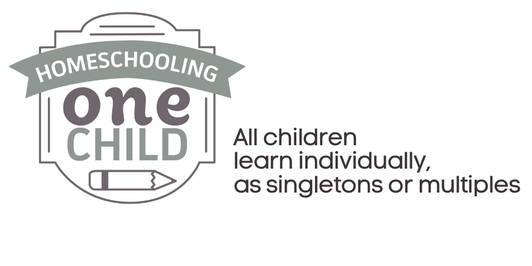
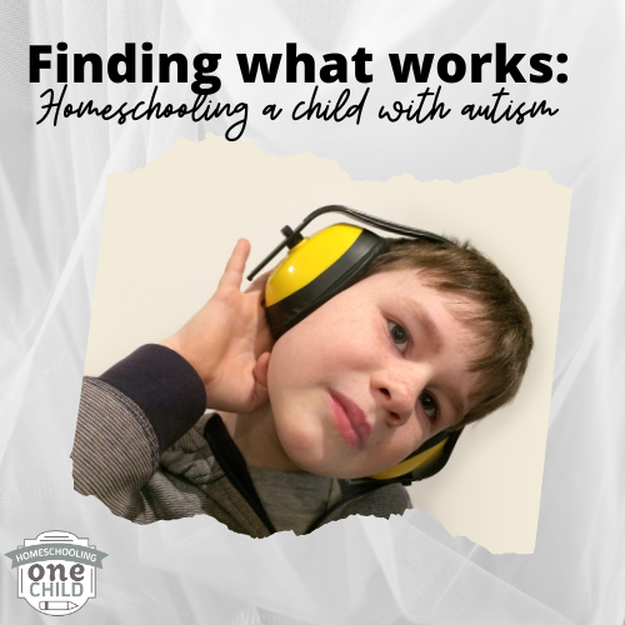


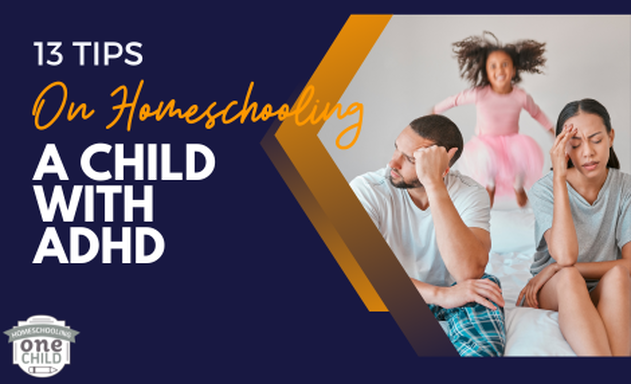








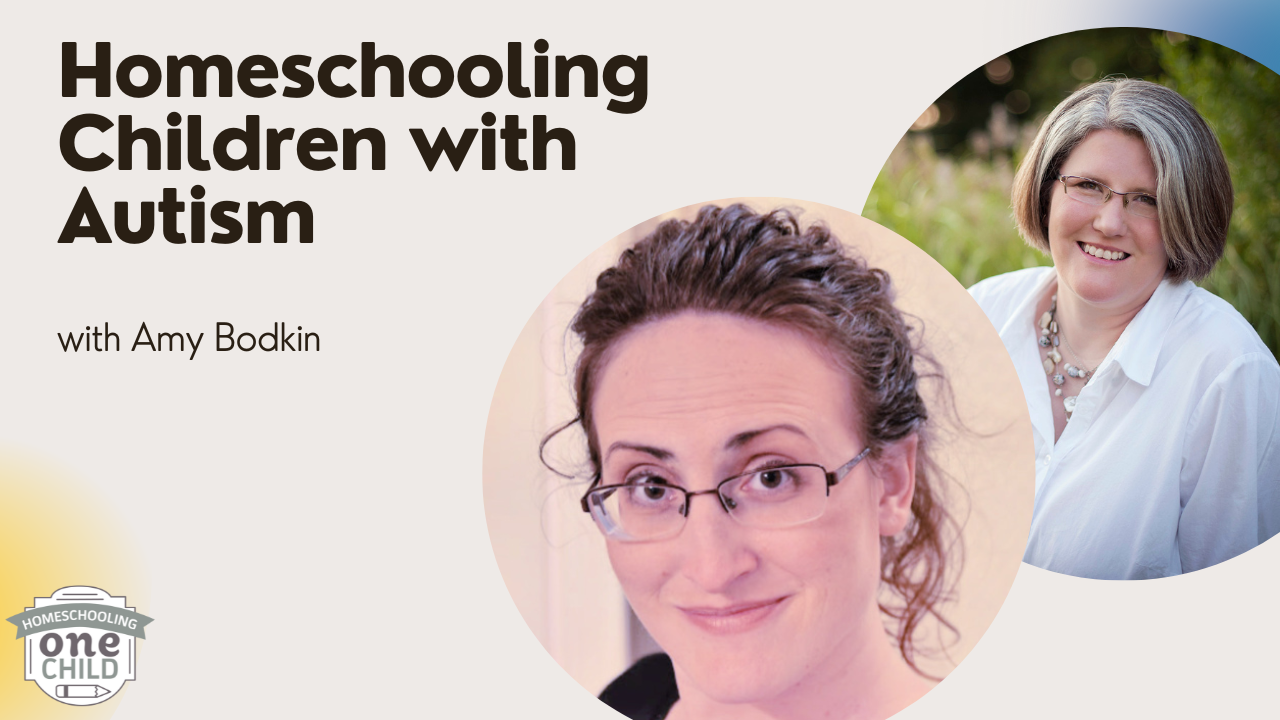
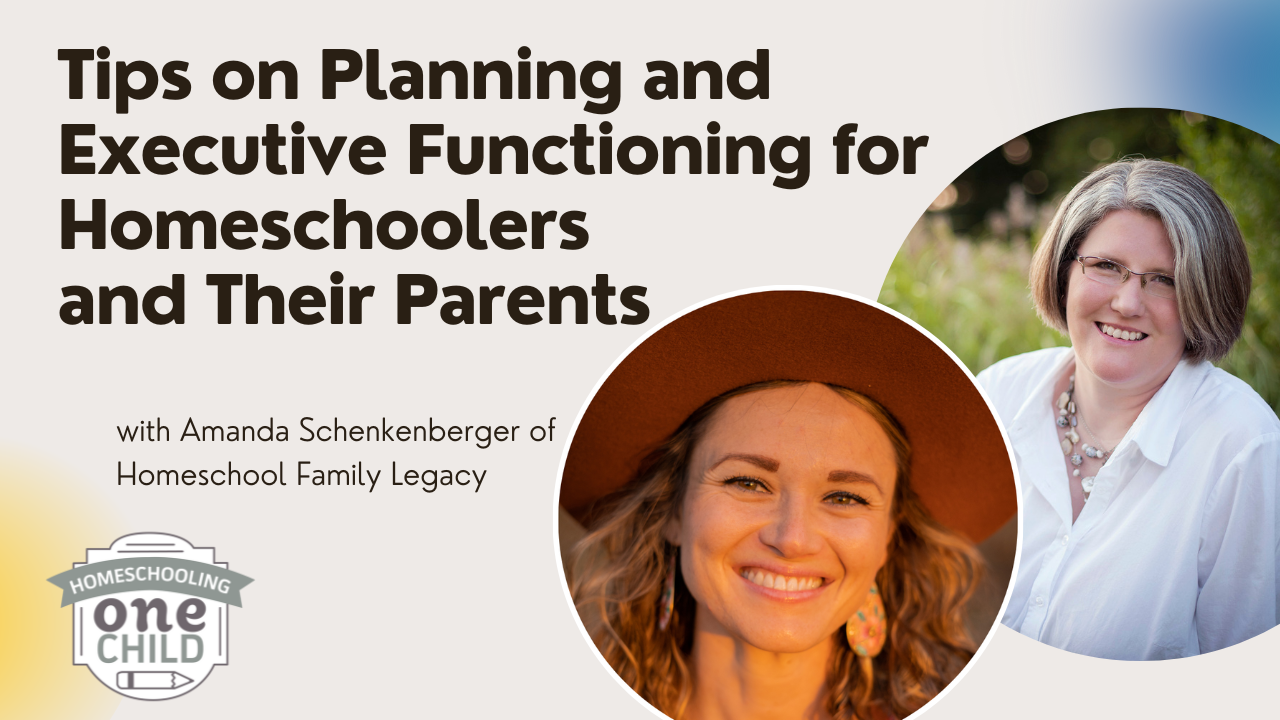
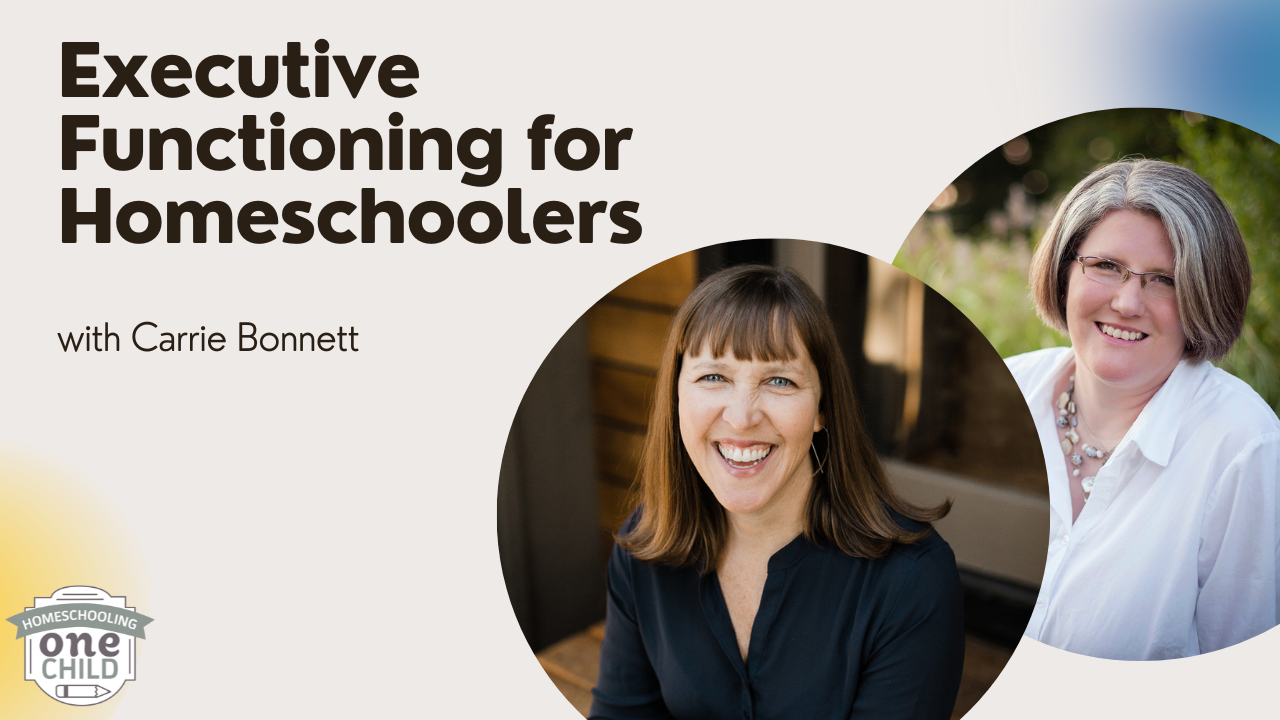
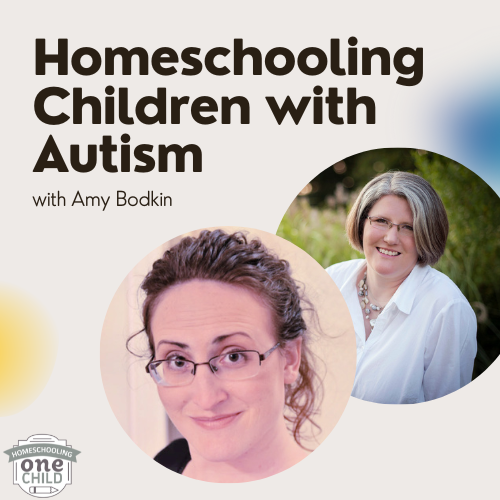
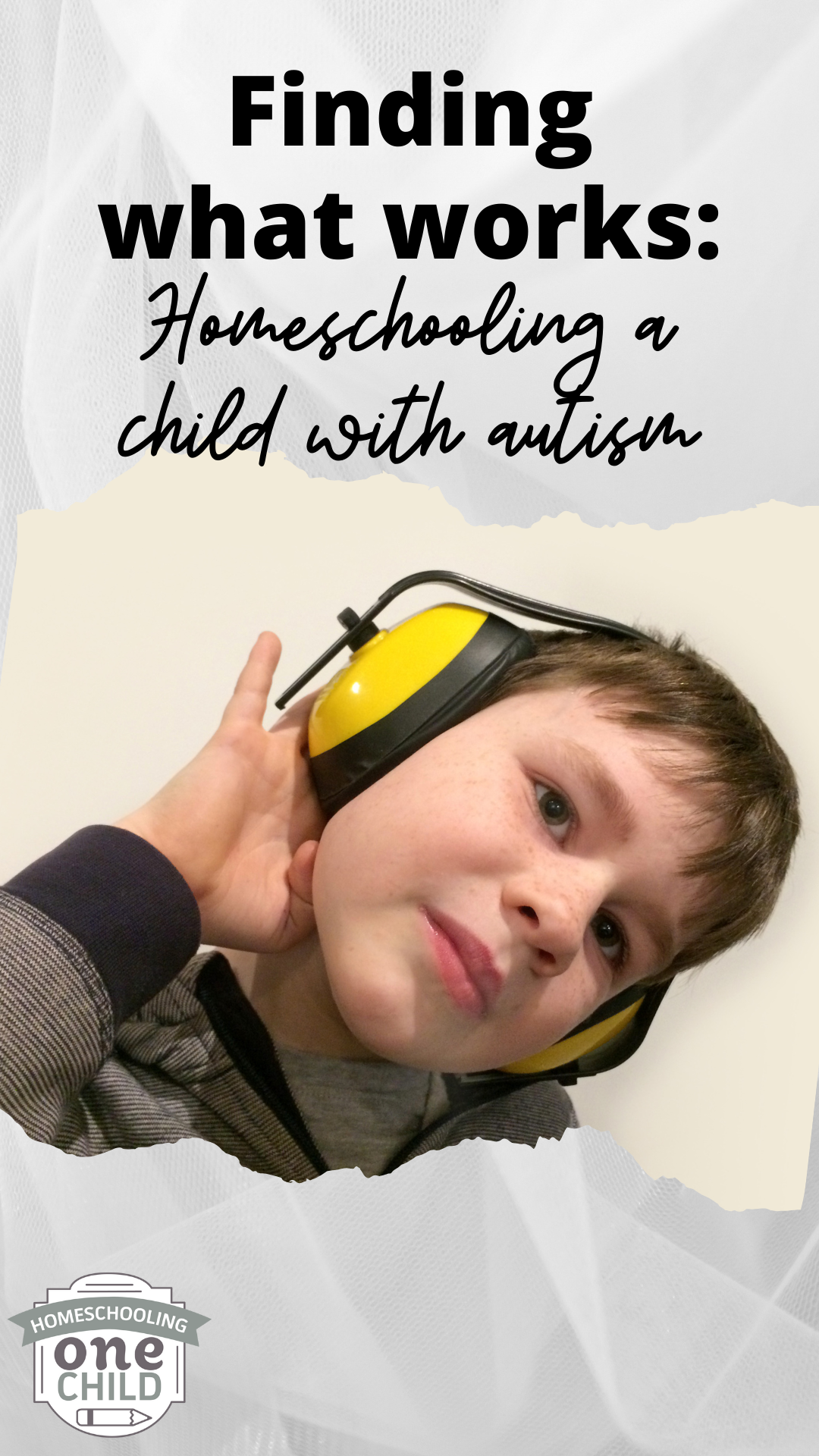
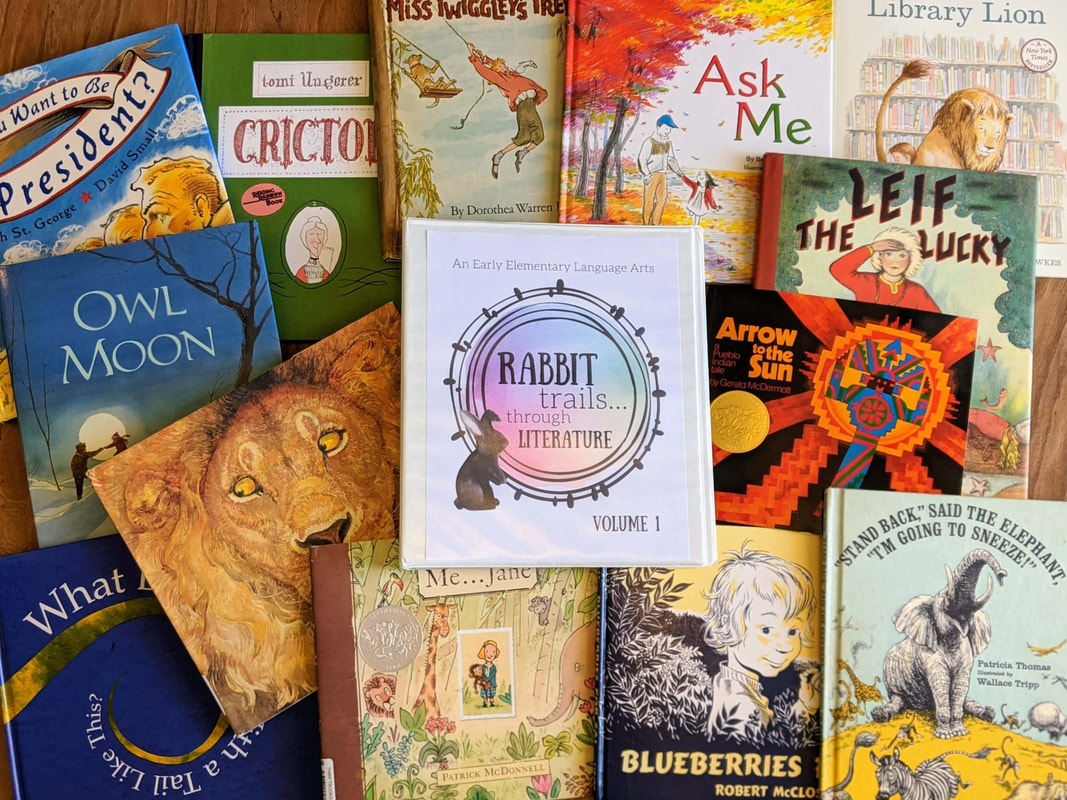
 RSS Feed
RSS Feed
